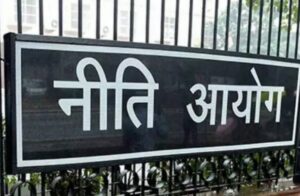Professor( Dr) R.K.Panda

In the present day’s highly globalized economy innovation plays a key role for growth and competitiveness. The capability to innovate and bring innovation to the market will be the crucial determinant of global competitiveness of the nations over the coming decades. The concept of innovation encompasses technological as well as non-technological- the former relates to diffusion of new products and services of technological nature while the latter includes organizational and institutional innovations.
Innovation is different from research and invention. A company that has active research department does not have innovation. Invention does not equal innovation. Invention does not itself move a company forward while innovation makes a company move forward. Innovation truly occurs when something new appears on the market so that it can be bought and sold and successful innovation occurs when there is fast diffusion of the product or service to a wide audience. It is much more than R & D. Entrepreneurs convert ideas into economic opportunities through innovation. Therefore most governments in the world strive to augment supply of competent and globally competitive entrepreneurs in their respective countries.
Between developed and developing countries we find differences in the supply of entrepreneurial talents. While in developed countries we find adequate availability of talented entrepreneurs the same is lacking in case of developing countries. As a result in spite of rich resource endowments there is large scale poverty and hunger in developing countries.
India has been growing on an average at 7 percent per annum in recent years. Yet there is large scale under utilization of capacity – both physical and human. Along with unemployment which has been growing at a rapid rate, quite a large section of our population are engaged in low productive employment resulting in they are being pushed to near poverty level of living. But unlike most of the developed countries, India is a young country with about 63 per cent the total population are in the working age-group of 15-59 years. More particularly more than 54 percent are below 25 years of age. This demographic capability of the country needs to be utilized more efficiently to generate higher economic growth. We have to engage our youth in creative pursuits through developing skill including entrepreneurial skill. Since an innovation requires a network of institutions, rules and procedures to operate, the coordinated working of a multiple actors in the innovation system such as universities, research institutions, enterprises, think tanks, policy makers and others is required.

NITI Aayog in its Vision 2030 Report has highlighted the dismal state of research in India. India spends hardly 0.7 percent of GDP in research in 2018. Unlike countries like U.S A and China where the private sector spends about 70 percent on research leaving Government spending 30 percent, in India it is just the opposite. Since the Government can not raise spending on research much more, the private sector is to be incentivized to invest more on research and innovation. Research and Innovation will trigger higher economic growth with faster reduction of poverty.
Formerly Professor of Economics, Utkal University and Director NKC Centre for Development Studies, Bhubaneswar.





























